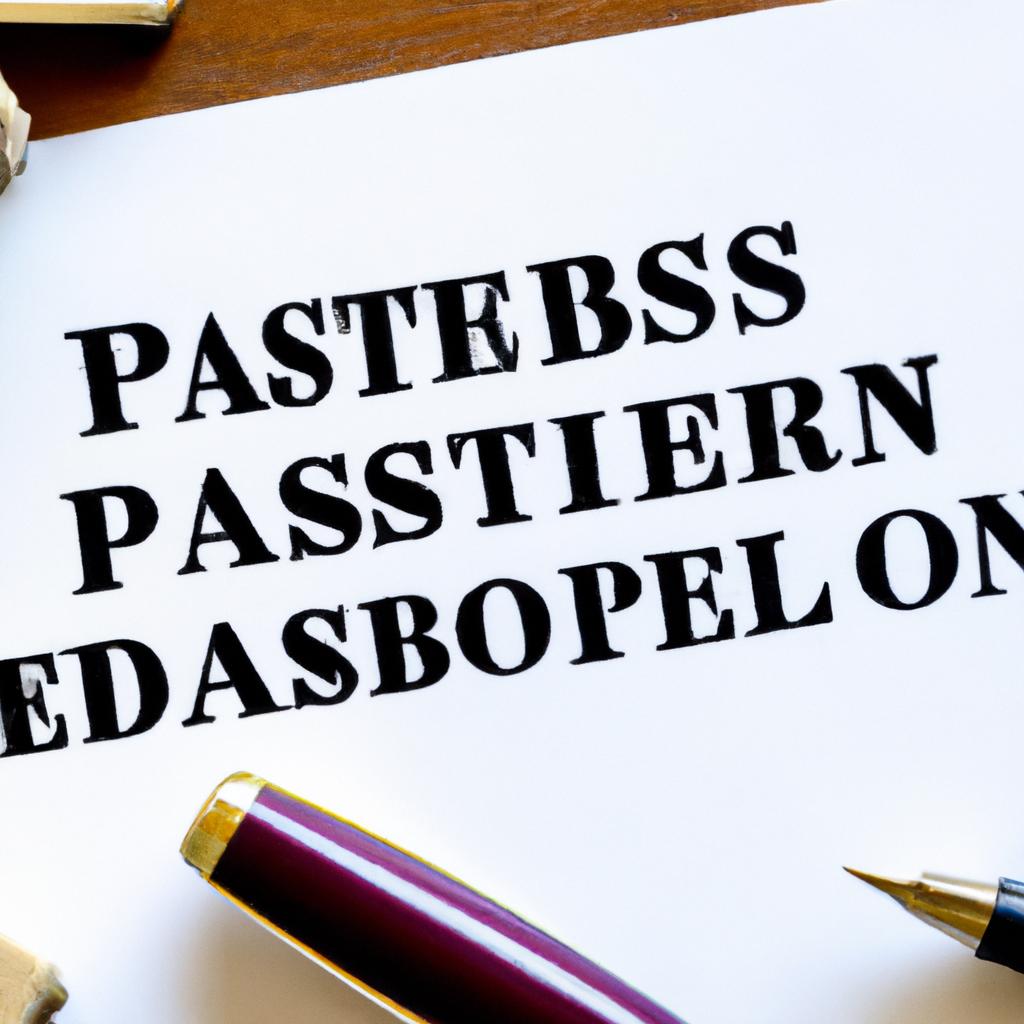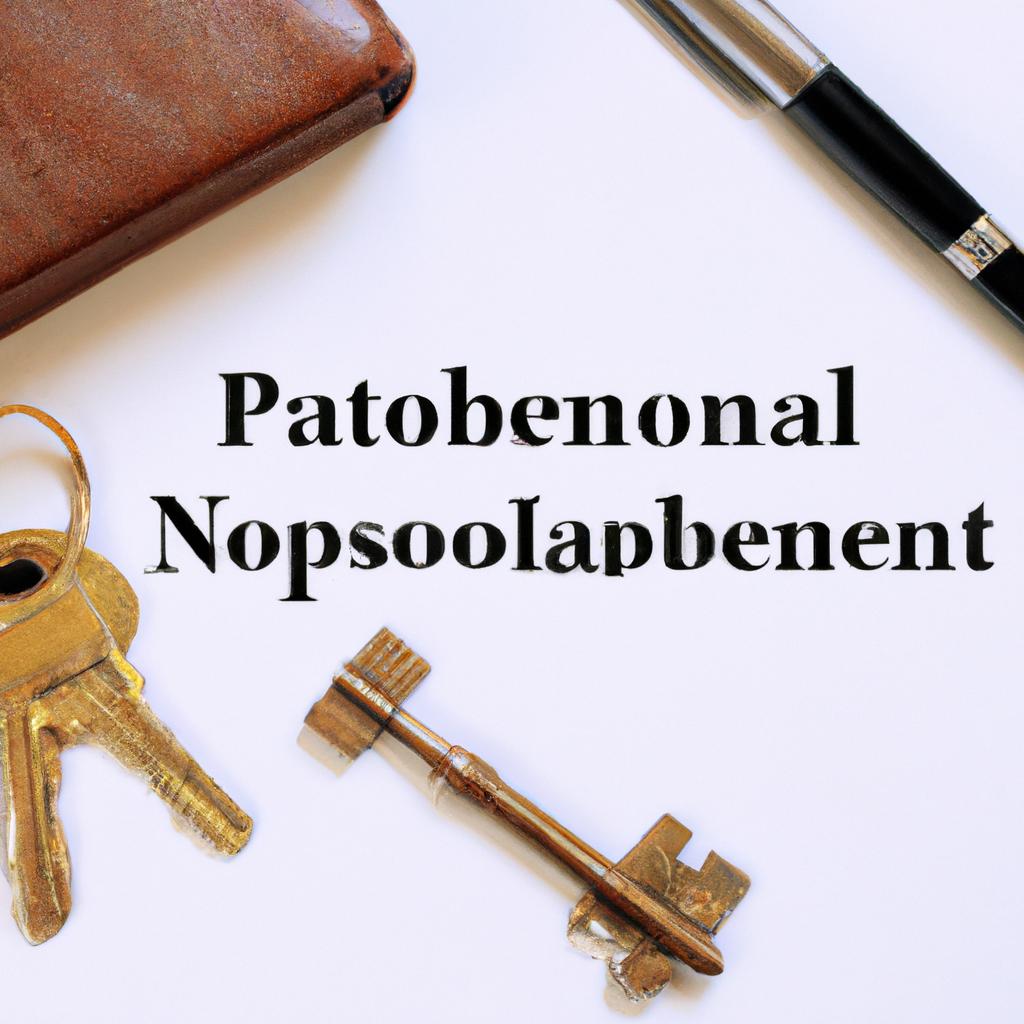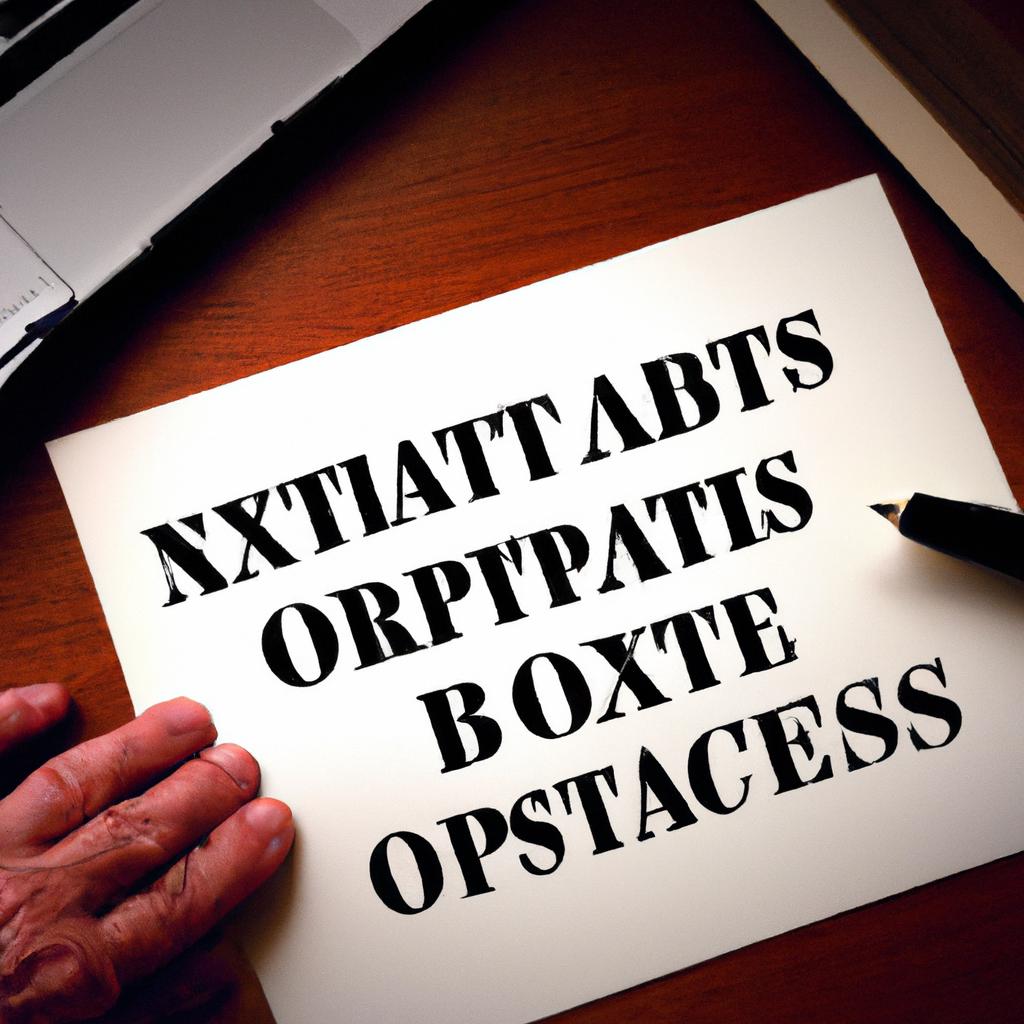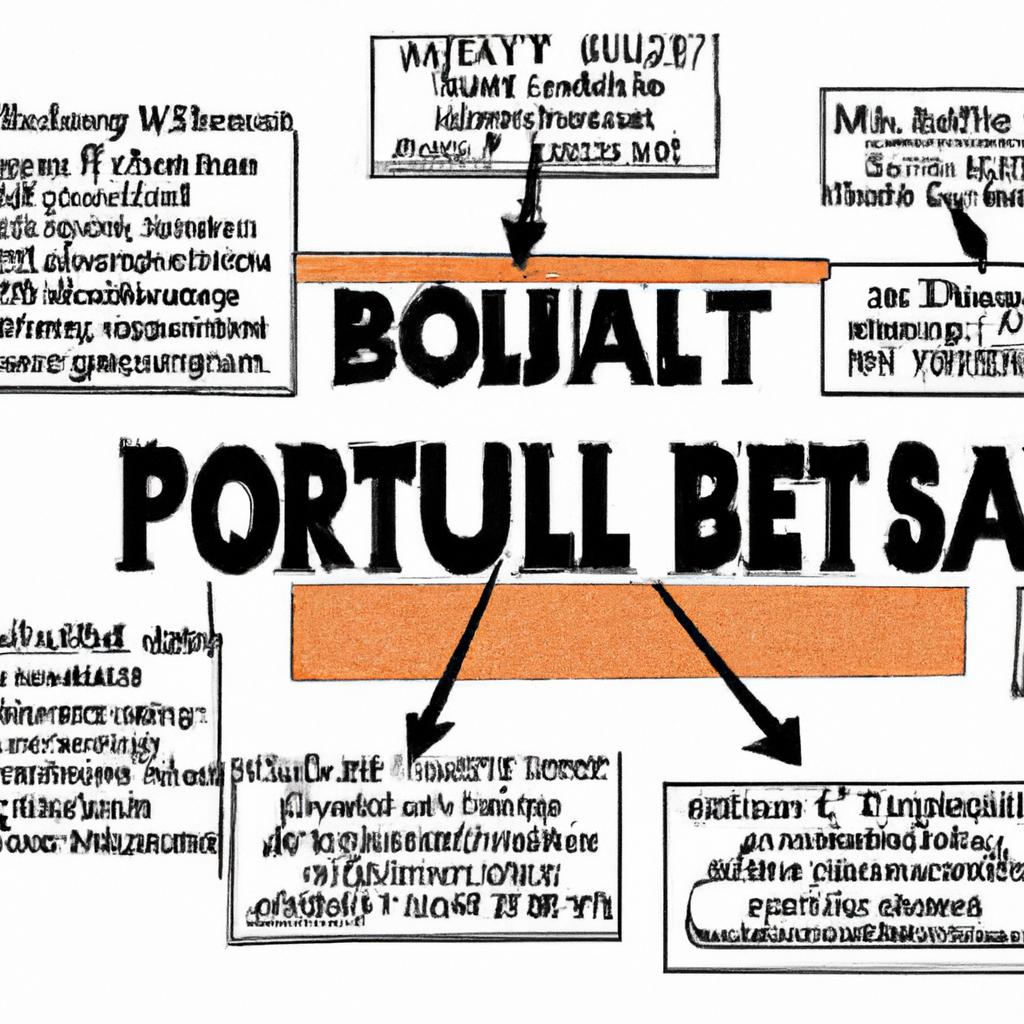In the world of estate planning and probate, the concept of non-probate assets holds significant importance for individuals seeking to protect and distribute their assets upon their passing. As experienced attorneys at Morgan Legal Group in New York City, we understand the complexities surrounding non-probate assets and the impact they can have on an individual’s estate plan. In this article, we will delve into the definition of non-probate assets and their implications for estate planning, providing invaluable insights for those navigating the intricacies of Wills and trusts.
Understanding Non-Probate Assets in Estate Planning
When it comes to estate planning, it is crucial to understand the concept of non-probate assets. Non-probate assets are assets that are not subject to the probate process upon the owner’s death. These assets pass directly to the designated beneficiaries outside of the probate court, making the transfer quicker and more efficient. It is important to identify and properly plan for non-probate assets in your estate plan to ensure that your assets are distributed according to your wishes.
Common examples of non-probate assets include:
- Joint tenancy property: Assets owned jointly with rights of survivorship automatically pass to the surviving joint owner.
- Retirement accounts and life insurance policies: These assets have designated beneficiaries who will receive the funds directly.
- Payable-on-death (POD) and transfer-on-death (TOD) accounts: Bank accounts, investment accounts, and real estate can be designated as POD or TOD to transfer to beneficiaries without probate.

Key Considerations when Identifying Non-Probate Assets
When it comes to identifying non-probate assets, there are several key considerations that should be taken into account. These assets typically do not go through the probate process upon the owner’s passing and are distributed outside of a will. Understanding what constitutes a non-probate asset is crucial for effective estate planning and ensuring that your wishes are carried out accurately.
One important consideration when identifying non-probate assets is to review the titling of various accounts and properties. Assets that are held in joint tenancy with rights of survivorship, tenancy by the entirety, or as community property with rights of survivorship will typically pass outside of probate. Additionally, assets with designated beneficiaries such as retirement accounts, life insurance policies, and payable-on-death (POD) accounts are also considered non-probate assets. It’s essential to keep these designations up to date and align them with your overall estate plan to avoid any potential conflicts or discrepancies.

Strategies for Maximizing Non-Probate Assets in Your Estate Plan
Non-probate assets are assets that do not pass through the probate process upon your death. These assets are typically distributed directly to beneficiaries outside of the probate court, allowing for a faster and more efficient transfer of wealth. It is important to understand the various strategies available for maximizing non-probate assets in your estate plan, as they can help you minimize taxes, avoid probate, and ensure that your assets are distributed according to your wishes.
One common strategy for maximizing non-probate assets is to designate beneficiaries on assets such as retirement accounts, life insurance policies, and payable-on-death accounts. By doing so, you can ensure that these assets pass directly to your chosen beneficiaries without going through the probate process. Another strategy is to create a living trust, which allows you to transfer assets to the trust during your lifetime and designate beneficiaries who will receive the assets upon your death. By utilizing these strategies and working with a knowledgeable estate planning attorney, you can ensure that your non-probate assets are maximized in your estate plan.

Benefits of Utilizing Non-Probate Assets in Trusts and Wills
Non-probate assets are assets that are not subject to the probate process upon the owner’s death. These assets include:
- Jointly held property with rights of survivorship
- Retirement accounts with designated beneficiaries
- Life insurance policies with designated beneficiaries
- Payable on death (POD) and transfer on death (TOD) accounts
By utilizing non-probate assets in trusts and wills, individuals can benefit in various ways. One major benefit is the avoidance of probate, which can be time-consuming and costly. Additionally, using non-probate assets in estate planning can help ensure that assets are distributed according to the owner’s wishes and can also provide privacy for beneficiaries as the distribution of these assets is not made public through the probate process.
Q&A
Q: What are non-probate assets?
A: Non-probate assets are assets that pass directly to a beneficiary upon the owner’s death, without having to go through the probate process.
Q: What types of assets are considered non-probate assets?
A: Common types of non-probate assets include life insurance policies, retirement accounts, jointly owned property with rights of survivorship, and assets held in a trust.
Q: Why are non-probate assets important to consider in estate planning?
A: Non-probate assets can provide a more efficient and cost-effective way of transferring assets to beneficiaries, as they typically do not require the time-consuming and expensive probate process.
Q: How can I ensure my non-probate assets are properly accounted for in my estate plan?
A: It is important to review and update your beneficiary designations on a regular basis to ensure they align with your overall estate planning goals. Additionally, working with a qualified estate planning attorney can help ensure all of your assets are properly accounted for in your estate plan.
Q: Are there any potential drawbacks to non-probate assets?
A: While non-probate assets can streamline the transfer of assets to beneficiaries, it is important to ensure that they are coordinated with the rest of your estate plan to avoid any unintended consequences or disputes among beneficiaries.
To Wrap It Up
In conclusion, understanding non-probate assets is essential for anyone looking to plan their estate and ensure their assets are passed on smoothly to their loved ones. By identifying and properly designating these assets, individuals can simplify the probate process and provide clarity for their beneficiaries. Remember, consulting with a knowledgeable attorney or estate planner can help you navigate this complex area of estate planning with confidence and ease. So, take the time to review your assets and make sure you have a solid plan in place for the future. Your loved ones will thank you for it.
 Non-probate assets are an essential aspect of estate planning, but many people are still unfamiliar with this term and its implications. In simple terms, non-probate assets refer to items or property that do not go through the probate process upon the owner’s death. These assets can include both tangible and intangible assets and are vital for effective estate planning. In this article, we will take a closer look at what non-probate assets are, their types, and why they are crucial for estate planning.
Non-probate assets are an essential aspect of estate planning, but many people are still unfamiliar with this term and its implications. In simple terms, non-probate assets refer to items or property that do not go through the probate process upon the owner’s death. These assets can include both tangible and intangible assets and are vital for effective estate planning. In this article, we will take a closer look at what non-probate assets are, their types, and why they are crucial for estate planning.
Types of Non-Probate Assets:
The most common types of non-probate assets include:
1. Jointly Owned Property:
Jointly owned property is a common non-probate asset as it has a designated co-owner who automatically becomes the sole owner of the property upon the death of the first owner. This can include co-ownership of real estate, bank accounts, and marital assets.
2. Beneficiary Designations:
These are designations made in life insurance policies, retirement accounts, and other financial assets specifying who will receive the funds after the owner’s death. The beneficiary designated in these accounts will receive the assets directly without going through probate.
3. Trusts:
A trust is a legal entity where a trustee holds property for the benefit of a designated beneficiary. Trusts are also essential non-probate assets as they can avoid the probate process and allow for a smooth and private transfer of assets to beneficiaries.
4. Payable-on-Death (POD) Accounts:
Similar to beneficiary designations, POD accounts allow for the direct transfer of bank or investment accounts to a designated beneficiary without going through probate.
Significance of Non-Probate Assets in Estate Planning:
Now that we know what non-probate assets are, it is crucial to understand why they are a crucial aspect of effective estate planning. Here are some key reasons why non-probate assets are essential:
1. Avoiding Probate:
The primary advantage of non-probate assets is that they bypass the probate process. Probate is a legal process that involves the court, attorneys, and potential disputes between family members. It can often be time-consuming and costly, and having non-probate assets allows for a more streamlined transfer of assets to beneficiaries.
2. Privacy:
Probate is a public process, meaning that anyone can access information about the deceased’s assets and their distribution. By having non-probate assets, such as trusts and payable-on-death accounts, individuals can protect their privacy and avoid their personal and financial information from becoming public knowledge.
3. Faster Distribution of Assets:
Since non-probate assets do not go through probate, they can be distributed to beneficiaries much quicker. This can provide important financial support to loved ones and prevent delays in accessing necessary funds.
4. Flexibility in Distribution:
Non-probate assets also provide more flexibility in how assets are distributed to beneficiaries. With probate, the court typically follows the guidelines set forth in the deceased’s will, but with non-probate assets, the owner can designate specific distribution methods for each asset.
Practical Tips for Maximizing Non-Probate Assets:
Now that we understand the significance of non-probate assets, here are some valuable tips for maximizing their benefits in estate planning:
1. Keep Beneficiary Designations Up to Date:
It is essential to review and update beneficiary designations regularly. Changes in life circumstances, such as marriage, divorce, or the birth of a child, may require updates to existing designations to ensure that the intended beneficiaries actually receive the assets.
2. Consider Establishing a Trust:
Trusts are a powerful tool for estate planning as they provide even more control and privacy over assets. Consider setting up a trust and consulting with an estate planning attorney to determine the best type of trust for your specific needs.
3. Optimize Title and Ownership of Assets:
Ensuring that assets are titled and owned correctly is a vital step in maximizing non-probate assets. Jointly owned property, for example, should have the correct survivorship language to ensure a seamless transfer of ownership to the surviving co-owner.
Case Study: The Importance of Non-Probate Assets for Business Owners
Here is a real-life example of how non-probate assets can significantly impact estate planning. John was a successful business owner who passed away suddenly without an estate plan in place. His business was a significant part of his estate, and without any non-probate assets, it went through the probate process. This resulted in a lengthy and costly court battle between his two children, one from a previous marriage and one from his current marriage. The dispute ultimately led to the end of the business and a significant loss of wealth for both children.
Had John designated his business as a non-probate asset through a trust or a buy-sell agreement, this dispute could have been avoided, and his children could have received their inheritance without going through probate.
In conclusion, non-probate assets are essential for effective estate planning. By understanding the different types of non-probate assets and how they can benefit your estate plan, you can ensure a smoother transfer of assets to your loved ones and protect your privacy and legacy. Consult with an experienced estate planning attorney to create a comprehensive plan that includes both probate and non-probate assets to achieve your unique goals. Keep your non-probate assets up-to-date and optimized, and you can have peace of mind knowing that your legacy will be preserved for your heirs.

